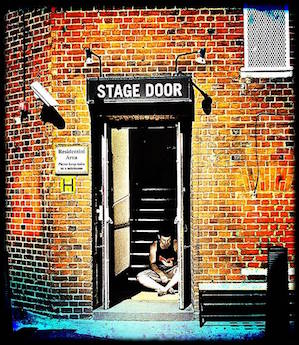News
9 Sep 2018
Why live music needs Government support

Subscribe to CX E-News
AND: WHAT CAN BE DONE.
By Julius Grafton.
CX calls for Government intervention amid a crisis in the live music industry, as many more venues close than ever open, workers lose gigs, and the mortality rate amongst performers and crew continues to grow.
That’s an alarming opening statement but it’s irrefutable. Comparison of gig guides in all cities and statistics from Entertainment Assist, Support Act and ARCA all point to a growing problem fuelled by soaring commercial real estate values and ever increasing red tape wrapped around building and development applications by local councils nationwide.
Why do we even need a development application to add a performance stage into an existing venue? Why must we be held to the strict requirements of the Building Code and make a wheelchair specific ramp to that stage? Why must outdoor events submit a D.A. and be held to ridiculous ‘abundance of caution’ traffic, safety, security plans and then have every ounce of vibe attenuated into a dull sound by inconsistent noise mitigation planning to appease a handful of vocal, well connected political donors with the mayor / minister / premier on speed dial?
We’re not talking any genre of performance here, EVERYTHING is affected by rising costs, lockout laws, unrealistic ‘safety’ management and almost complete indifference from all levels of government.
CX has lodged a submission with Live Performance Australia (LPA), the peak industry body for venues, promoters and producers. They in turn are represented at the The Federal House of Representatives Standing Committee on Communications and the Arts inquiry into the factors contributing to the growth and sustainability of the Australian music industry.
Our submission:
LIVE PERFORMANCE AUSTRALIA SUBMISSION ON GOVERNMENT SUPPORT FOR LIVE MUSIC
Industry sentiment is that there is little or no Government support for live music. Progressive regulation at all levels of Government have contributed to the steady decline of venues while those that still trade struggle to make a return.
Music industry professionals universally complain that the industry is stifled by sanctions that have incrementally been added without concession or regard to consequence. This along with rising commercial real estate values has crippled the music industry.
Within the ranks of the industry, mortality and suicide rates are very, very high in part due to lack of meaningful work. (Refer: Entertainment Assist study). This is borne out by the demands on the industry support fund administered by Support Act.
SHORT SUMMARY
Our answers to the two propositions in bullet points below.
- What are the key challenges and barriers to growth for the live music industry? (e.g. red tape, funding, venue availability, liquor laws, ticket scalping, noise restrictions, skills capabilities, etc.)
- Lack of sensible uniform venue noise restrictions, and security rules
- Red tape holding back venues and outdoor events
- Inadequate community awareness of the societal value of music
- What policies, initiatives or actions by government could overcome these barriers and support further growth of the live music industry?
- Sensible uniform venue noise restrictions, and security rules
- Remove red tape holding back venues and outdoor events
- Properly build community awareness of the societal value of music
FULL SUBMISSION
- VALUE
- While much of this submission carries cost to Government, we discourage any attempt to measure the monetary value of music to the community and encourage Governments accept instead that music is a fundamental deep-rooted human function of story-telling. As religion is accepted as a right to practice, so too should music be accepted as a right to perform without excessive sanctions.
- Move to make the encouragement of live music a bipartisan issue by removing program control from any individual decision maker.
- Establish a bipartisan committee to deliver the adopted initiatives herein made up of equal numbers of Government and Opposition appointees along with representatives from the three peak industry bodies named in this submission – LPA, AMA, ACETA, and the relevant Unions.
- Federally fund a far reaching educational advertising campaign to raise awareness of the social value of music – example, ‘Life. Be in it’. The campaign to run ahead of debate on the finer aspects of the overall program, to swing public support behind music.
- Enable the committee (c) to seek creative submissions for elements of the campaign (d) and avoid over-capitalisation that can arise if the whole program is tendered to one agency. Example: draw submissions directly from creatives within the music industry.
- CURRICULUM
- Ensure Australian schools emphasise and deliver better music training. By way of example, the USA has a rich and vibrant marching band culture that demands the best performance, which encourages uptake of musical instruments in junior school.
- Minimise any Government Department role in determining funding and methodology by inviting peak industry bodies such as Live Performance Australia and the Australian Music Association to determine fair and equitable funding for (c and d) below.
- Federally subsidise existing and future state school spectacular competitions in public and private school sectors.
- Federally fund a national, televised combined school spectacular that brings together winners from each state.
- CULTURE
- Encourage live music performance in public spaces beyond busking. Incentivise airports, shopping centres and railway stations to allow organised solo performers, such as done at Portland Airport, Oregon, USA. That airport has piano or acoustic guitar performers on each airside concourse all hours the airport is open. Management saw the benefits and the airport then became better rated, winning awards. Performers are scheduled, signboards promote them, piano or small PA are supplied with a display table, and they collect tips and sell merchandise such as T-shirts and CDs.
- Privately operated Australian Airports may require a small fee or other reasonable incentive from Government if they can’t be convinced of the calming merits of music.
- BUSKING
- Create a national guideline for councils where busking fees are unified and reduced to bare minimums. Reduce and enforce amplified levels to an enforced standard to engender cooperative spirit from retailers and nearby businesses. Increase, allocate and rotate locations using a random method for equity. Establish uniform performance times, ie: 8am until 10pm, or 1am in busy entertainment areas.
- MUSIC VENUES
- Prevent change of use of existing venues beyond defined re-formatting. Example: a venue is not successful or sold, and the owner seeks to convert the premises for a use beyond live music. A test should apply that prevents the premises being lost to future use as a music venue, ie: closed and converted to offices or residential. (Refer Exchange Hotel and Town Hall Hotel in Balmain, NSW).
- Study, standardise and minimise requirements for overt security and RSA monitoring by recommending more CCTV for above to reduce venue cost and reduce intimidation of paying audiences. By way of example, many venues in Las Vegas have good security which is not always visible.
- Regulate with the support of states and councils to negate noise complaints by renters or buyers who occupy nearby after the venue is established. This is already law in Victoria – the ‘Agent of Change’ legislation which world-leading cities including London and New York are studying to adopt.
- Engage with the professional audio industry via its peak industry body ACETA to unify a national code for acoustic modelling for testing of venue noise emissions.
- Allow proposed venues that exceed a margin (b, above) to offer noise mitigation such as double glazing to affected residents in return for disallowing noise complaints.
- Encourage the granting of state payroll tax concessions to venues that feature live music over at least 80% of evenings that they trade and over 70% of those evening hours.
- Remove any lockout or similar laws on any venue matching (c, above).
- Examine city and state laws and harmonise all nationally.
- Remove the requirement for a Development Application for any venue seeking to add live music to an existing space.
- Remove the requirement for a Development Application for any venue adding a fixed stage structure and any supporting infrastructure (such as mix riser) to an existing space and establish a simple code for fixed stage construction.
- Simplify any regulations (city or state) that inhibit provision of simple food at venues.
- Remove any regulations (city or state) that require provision of food at live music venues.
- OUTDOOR PUBLIC PERFORMANCES – NOISE
- Engage with the professional audio industry via its peak industry body ACETA to unify a national code for acoustic modelling for setting and testing of outdoor venue noise limits.
- Draw submissions from the professional music industry through its peak industry bodies and union as to the actual noise limits to apply.
- Establish a national code for noise limits set as above.
- Ensure the nature and characteristic of any musical genre is preserved and not inhibited by noise limits.
- Establish a ladder of limits that decreases between 9pm and 12 midnight, with no outdoor performances allowed after midnight. This enables the provision of (d) above which would not allow the loudest performance beyond 9pm and reduce each genre each hour.
- Legislate the code nationally.
- OUTDOOR PUBLIC PERFORMANCES – RED TAPE
- Study, standardise and minimise requirements for overt security and RSA monitoring by recommending more CCTV for above to reduce cost and reduce intimidation of paying audiences. By way of example, many venues in Las Vegas have good security which is not always visible.
- Study, standardise and minimise requirements for paid Police presence at outdoor events.
- Study, standardise and legislate to allow patron drug toxicity testing if promoter chooses to allow it.
- Remove the requirement for a Development Application for outdoor events and instead design a standard application template with fast approval times that make approval automatic if all provisions met.
- Establish simple national guidelines for traffic and crowd management planning that are scaled to the size and nature of the event.
- Study, standardise and minimise any excessive requirements, fees or regulations on temporary food or alcohol concessions at outdoor venues.
CX invites comments on the above, please email juliusmedia@me.com
Subscribe
Published monthly since 1991, our famous AV industry magazine is free for download or pay for print. Subscribers also receive CX News, our free weekly email with the latest industry news and jobs.




